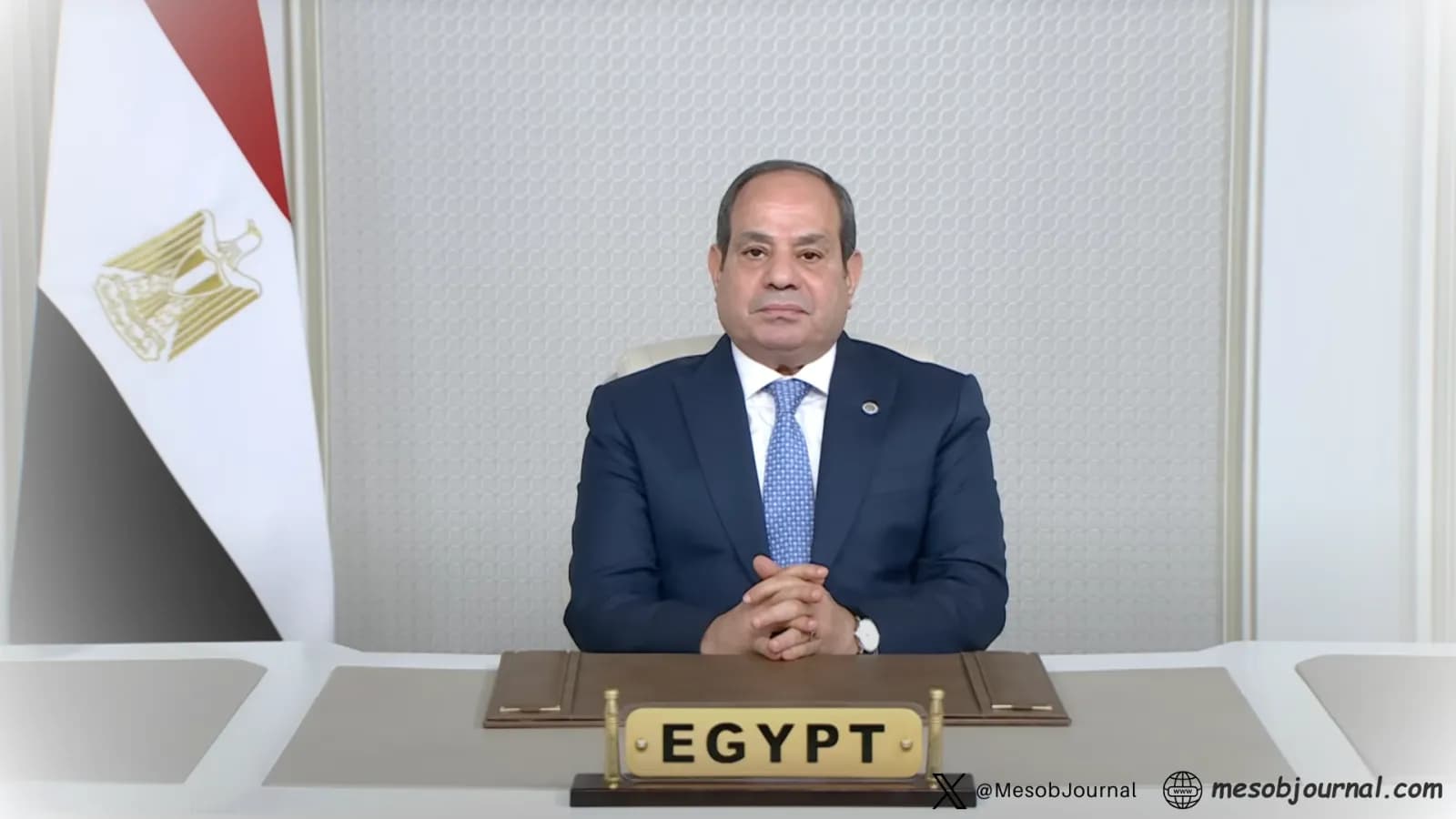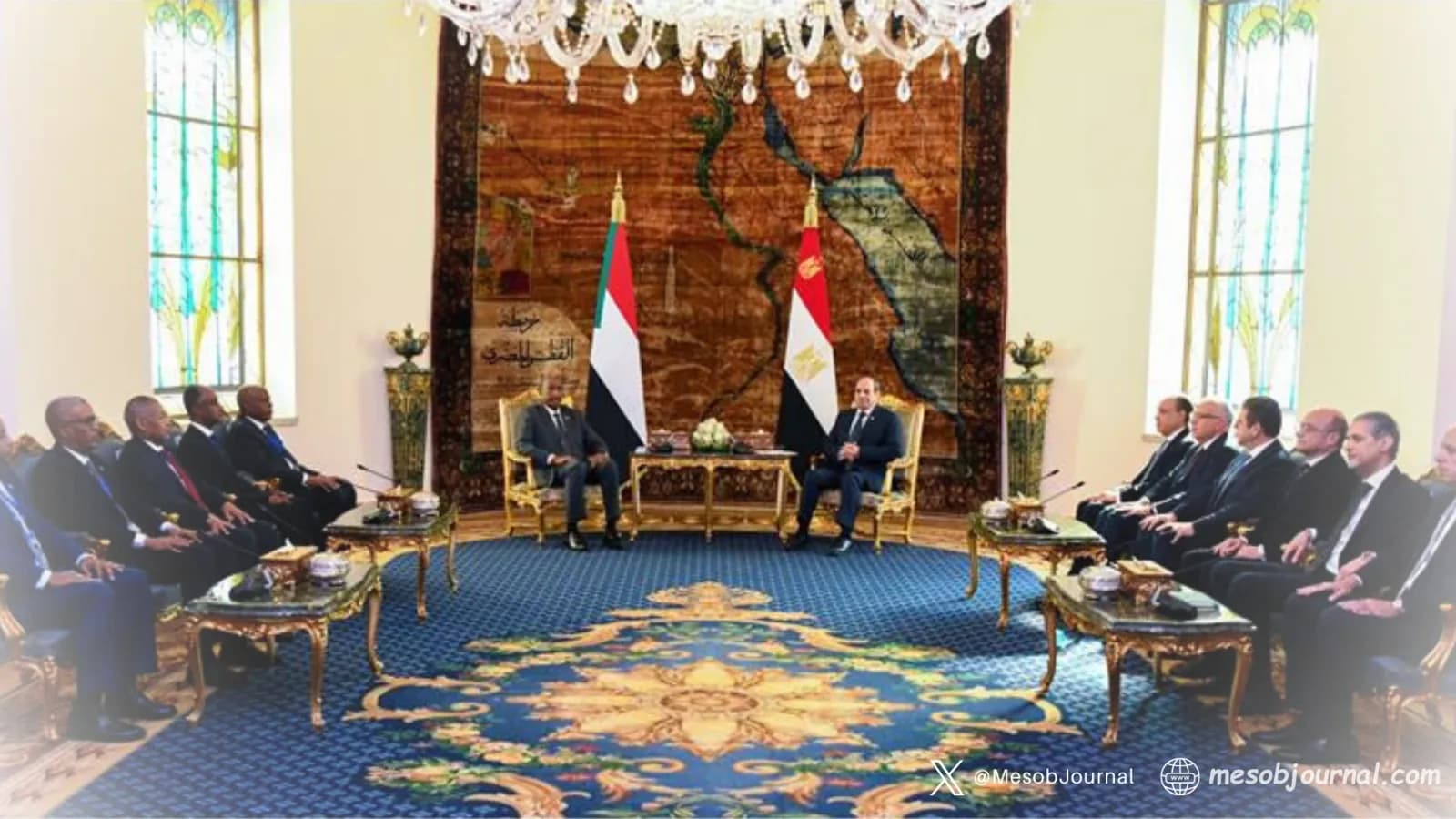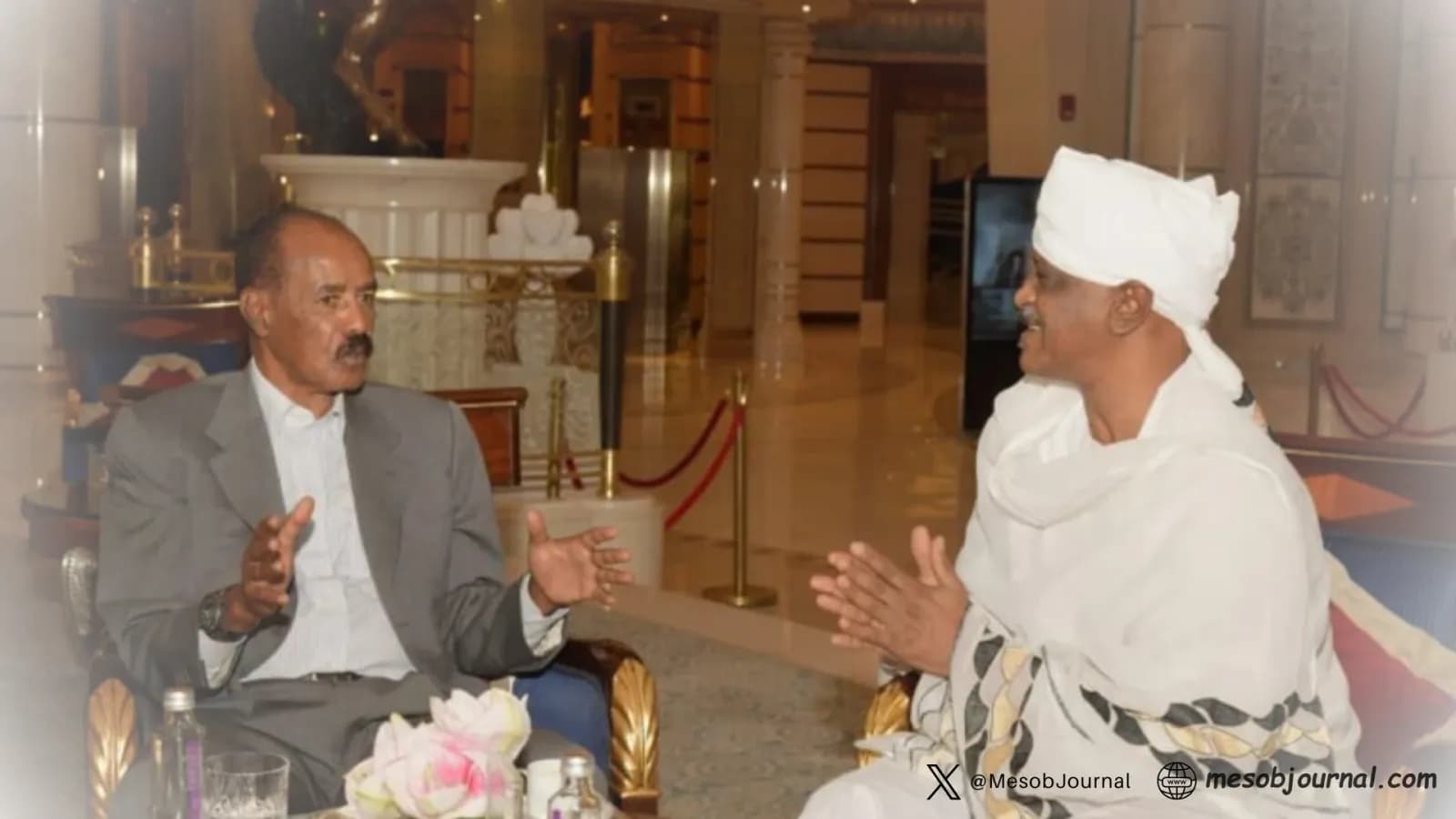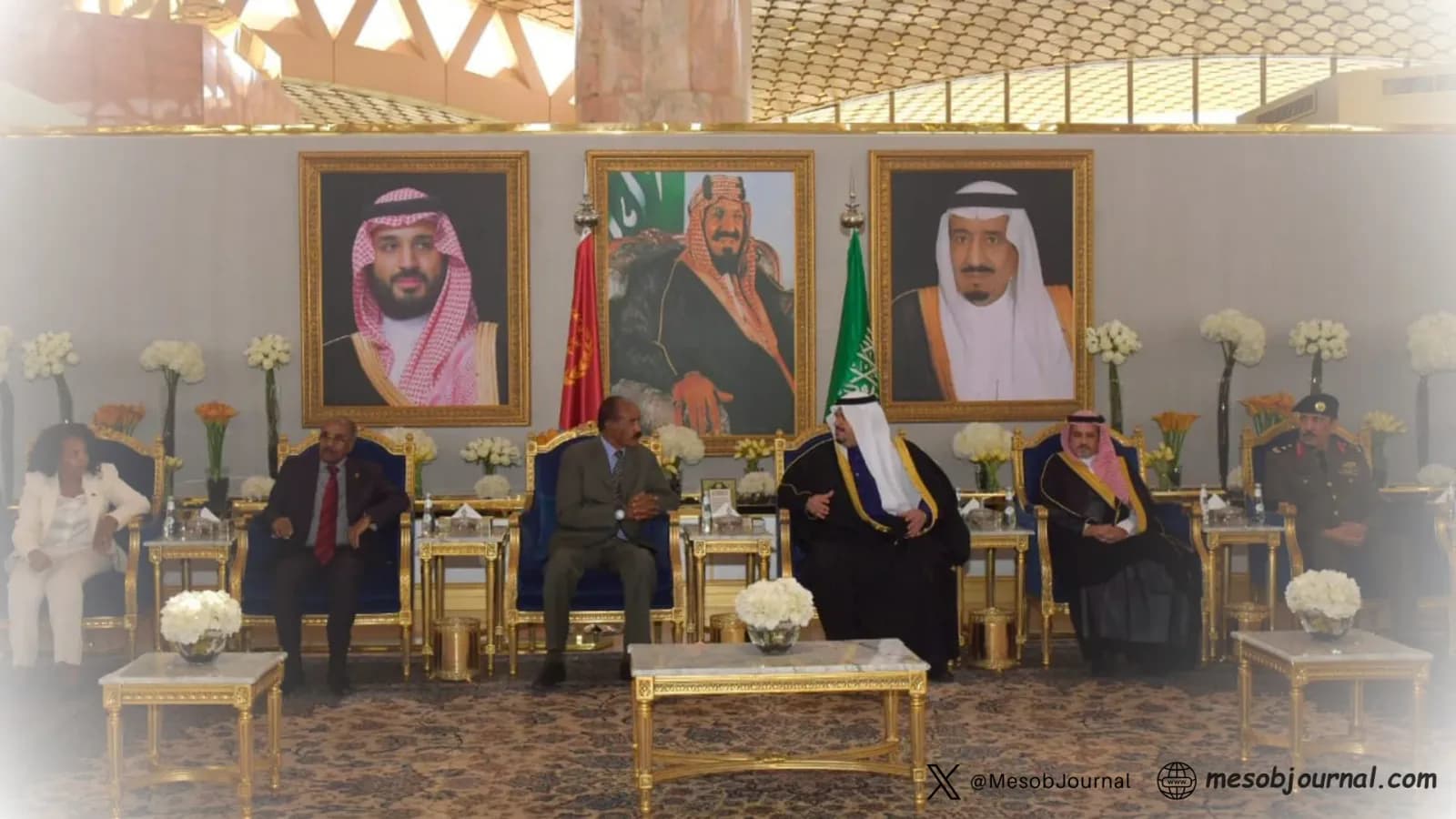El-Sisi Warns Ethiopia: “Egypt Won’t Stand Idly By on the Nile”

In one of his strongest statements to date on the Nile dispute, Egyptian President Abdel Fattah El-Sisi used the opening of the 8th Cairo Water Week to deliver a firm warning to Ethiopia over its handling of the Grand Ethiopian Renaissance Dam (GERD).
Addressing ministers, diplomats, and experts from across the world, El-Sisi said Egypt “will not stand idly by in the face of Ethiopia’s irresponsible approach” and reaffirmed Cairo’s absolute rejection of “any unilateral measures on the Nile that threaten the interests of downstream nations.”
“Unilateralism Has No Place on Shared Rivers”
Under the conference theme “Innovative Solutions for Climate Resilience and Water Sustainability,” the president framed water as “the essence of existence”—but his remarks soon turned into a stern political message.
“International rivers were not created to be lines that separate nations,” El-Sisi declared.
“They are lifelines for integration and bridges of cooperation. But cooperation requires respect for law and for the rights of others.”
He accused Ethiopia of “imposing a fait accompli” on the Nile through years of uncoordinated actions and warned that its latest release of water from the GERD—conducted without prior notification—had already caused harm to both Egypt and Sudan.
“Actual evidence now proves the validity of our demand for a binding agreement,” he said. “Unregulated flows from the dam have inflicted damage on downstream countries. This recklessness cannot continue.”
Fourteen Years of Diplomacy, Little Will from Addis Ababa
El-Sisi reminded the audience that Egypt had spent 14 years negotiating in good faith with Ethiopia, offering “sound technical alternatives” designed to satisfy Addis Ababa’s energy needs while protecting downstream populations.
Those efforts, he said, were met with “intransigence and a lack of political will,” motivated by “narrow domestic agendas far removed from true development.”
He called on the African Union and the international community to confront what he described as “reckless behavior”and to ensure that the Nile remains a “shared resource, not a monopoly.”
“Development is not the privilege of a single country,” he insisted. “It is a collective responsibility of all the peoples of the river.”
Diplomacy as Strength — Not Submission
While reaffirming Egypt’s commitment to dialogue, El-Sisi emphasized that patience should not be mistaken for weakness.
“Our recourse to the United Nations and international institutions is a sign of maturity, not retreat,” he said. “But let no one misread our calm for indifference. Egypt will take all necessary measures to protect its water security and its people.”
The president’s tone left little ambiguity: Cairo’s diplomatic track continues, but its tolerance for unilateral actions is wearing thin.
A Call for Rules, Not Rhetoric
Beyond the warning, El-Sisi framed Egypt’s position within a broader appeal for “climate and water justice.” He said the future of water security depends on respect for international law and genuine cooperation, not the power politics of geography.
“Water security is not a luxury, and sustainable development is not optional,” he said. “Both are fundamental rights that must rest on fairness and the principle of no harm.”
Context: A Regional Fault Line
The GERD dispute remains one of Africa’s most sensitive flashpoints. Ethiopia completed the dam’s first full filling earlier this year without a binding trilateral agreement, despite objections from Egypt and Sudan. Addis Ababa maintains the project is essential for its development; Cairo argues that without coordination, it threatens the survival of over 100 million Egyptians who depend almost entirely on the Nile.
El-Sisi’s speech, delivered at an event dedicated to cooperation, underscored how deep that divide has become — and how determined Egypt is to draw a legal line around the world’s longest river.
“The Nile is a shared gift,” the president concluded. “Let it be a source of hope, not conflict. But Egypt’s right to life is not negotiable.”
Related stories

Abiy Ahmed’s Strategic Isolation Is Now in Writing
What Addis Ababa has spent two years denying is now staring it in the face—on White House letterhead. The January 16 letter from Donald Trump to Abdel Fattah el-Sisi isn’t just about mediation. It’s a signal. Clear, deliberate, and consequential. Washington is aligning itself

Egypt: Cairo Draws Clear Red Lines as Sudan’s War Tightens Its Grip
Cairo didn’t dress it up in diplomatic fluff. In a sharply worded statement issued during General Abdel Fattah al-Burhan’s one-day visit, Egypt’s presidency laid out a position that is as much about Sudan’s survival as it is about Egypt’s own security. The message was blunt: Suda

President Isaias Afwerki: Ending Sudan War Requires Cutting RSF Supply Lines
Eritrean President Isaias Afwerki has said that any serious effort to end the war in Sudan must begin with cutting off the supply routes that continue to arm and sustain the Rapid Support Forces (RSF), warning that calls for ceasefires are meaningless while weapons and mercenarie

Eritrean President in Riyadh for Strategic Talks Amid Regional Shifts
Eritrean President Isaias Afwerki arrived in Riyadh on Tuesday, 9 December, for a four-day working visit at the invitation of King Salman bin Abdulaziz Al Saud, marking another calculated move in a region undergoing rapid geopolitical adjustment. Upon landing at Riyadh’s Royal Te

